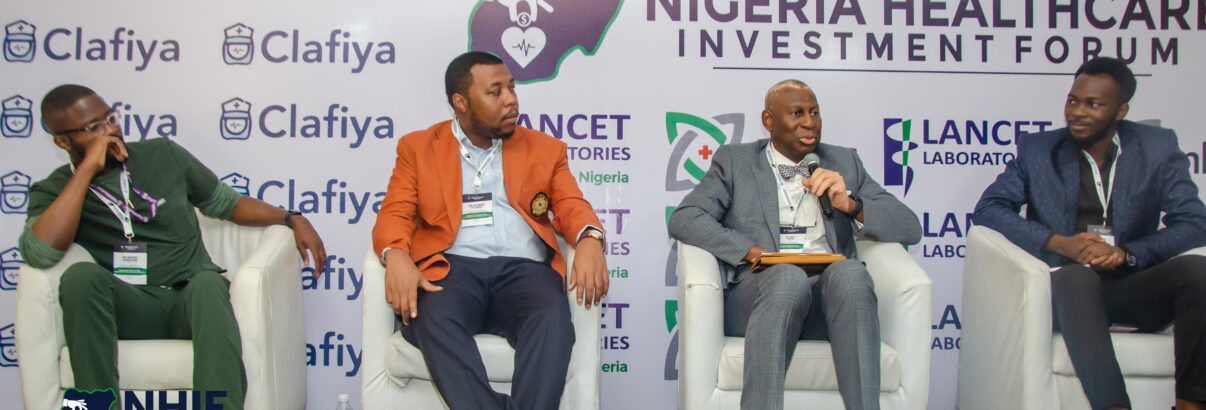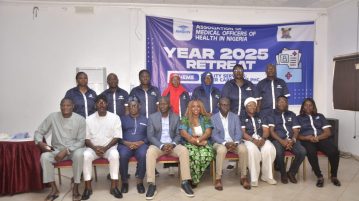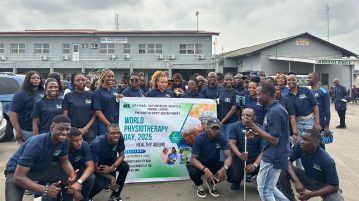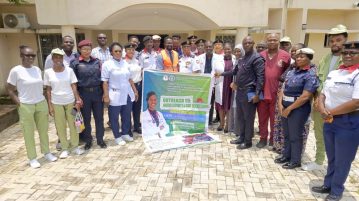Health funding, Health financing and Health investment are terms used to define how we cover up cost gaps in healthcare delivery.
According to the World Health Organization (WHO), “Health financing is a core function of health systems that can enable progress towards universal health coverage, by improving effective service coverage and financial protection.”
Currently in Nigeria, there are four ways in which healthcare is being financed. It can be through government budgetary allocation, Nigeria Health insurance Act (NHIA) – formerly Nigeria Health Insurance Scheme (NHIS), donor funding or private funding. Nevertheless, Out-of-Pocket (OOP) payment still remains the order of the day, as it makes up 69% of the total healthcare funding recorded, according to Adelakun Edward Odunyemi in 2021. Albeit, despite this prevalent situation of paying out-of-pocket, millions of people are still not able to access quality healthcare services, with many others receiving poor healthcare services.

After three consistent years of Lagos Health Summit (LHS), on the 16th of November 2022, Healthcare Analytics (HCA) Consults organized the Nigeria Healthcare Investment Forum (NHIF) 2022 – which focused on the need to create a platform that would connect developmental partners in the health sector with potential investors, foster innovative financing models, bridge healthcare financial gaps and promote both short-term and long-term growth of the sector. This event was open to the public and had over 100 people in attendance at the Civic Centre in Lagos. During the event, attendees shared their opinions, thoughts, and suggestions on how to enhance healthcare investments in emerging markets with ways to limit the barriers of health investment opportunities in Nigeria.
During the keynote speech at the event, the guest speakers elaborated on the importance of not just funding healthcare but also effectively funding the healthcare system. Some of these guest speakers in attendance were Habeeb Moshood (HCA founder/CEO), Jennie Nwokoye (Co-founder/CEO of Clafiya), Dr. Okulaja Olamide (representative of Lagos State Commissioner of Health), and Dr Abraham (representative of the Managing director of NHIA).

This was followed by a panel session on “how to catalyze funding and investment opportunities in the health sector”. Discussants on this panel were Dr Jimi Coker, founder/CEO of Habevit healthcare Limited, Mr. Olumide Soyombo; co-founder of Bluechip Technologies Limited and Dr Ibukun Tunde-Oni; Founder of 8medical. With emphasis made by Dr Jimi Coker on the need for a good cooperate governance and financial management in every health organisation. While Mr. Olumide Soyombo stressed that, in looking to invest in any start-up, background of the founder must be thoroughly investigated before an investor can comfortably invest in the start-up. He also mentioned that founders or developers with the knowledge that investors are critically funding problems that becomes opportunity, should be a guide to attracting investment/funding, because investors typically look for opportunities. He further mentioned problems like healthcare, logistics and key infrastructure gaps.
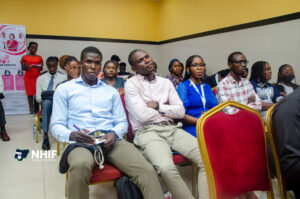
Other topics discussed by conference participants with the opportunity to brainstorm and develop practical recommendations included: “Catalyzing funding and investment opportunities in the health sector” and “Women inclusion: closing the gender gap in healthcare leadership”. Some of the guest panellists on these topics were Dr Kenechi Miracle Adinmu (representing the CEO of Clinalancet), Dr Omolola Salako (Founder and CEO of Oncopadi), and Unoma Grant (COO, Paelon Memorial Hospital).
Following the brainstorming sessions, some of the recommendations proffered – in line with the WHO approach to implementation of health financing are: Revenue raising (sources of funds, including government budgets, compulsory or voluntary prepaid insurance schemes, direct out-of-pocket payments by users, and external aid); Pooling of funds (the accumulation of prepaid funds on behalf of some or all the population); and Purchasing of services (the payment or allocation of resources to health service providers).
After which, Dr Pamela Ajayi (President of Healthcare Federation of Nigeria), encouraged and emphasised the need to look out for and support several effective start-ups towards taking actions to implement these recommendations.
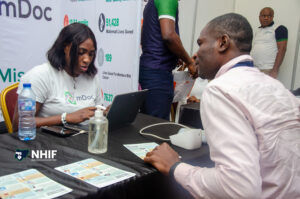
Furthermore, during another session, Dr Pamela highlighted the effect of the massive brain drain ongoing in Nigeria, and how it relates to the limited capacity for good health outcome, economic instability, and corruption within and beyond the healthcare system. In addition to this brain drain issue, Dr Okulaja Olamide spoke about the term “Brain Gain”, explaining ways in which Nigeria can facilitate the return of the migrated doctors – who have learnt from an experienced health system – back into her own healthcare sector.
Headline sponsor of the conference – Clafiya – and other sponsors such as, mDoc and Clinalancet provided a platform for products and services exhibition, networking and free medical screening for attendees at the event, as well as an avenue for goodwill messages.

Editor’s note:
This report was written by Rasheedat Ameen, Editor at Healthcare Analytics (HCA).

